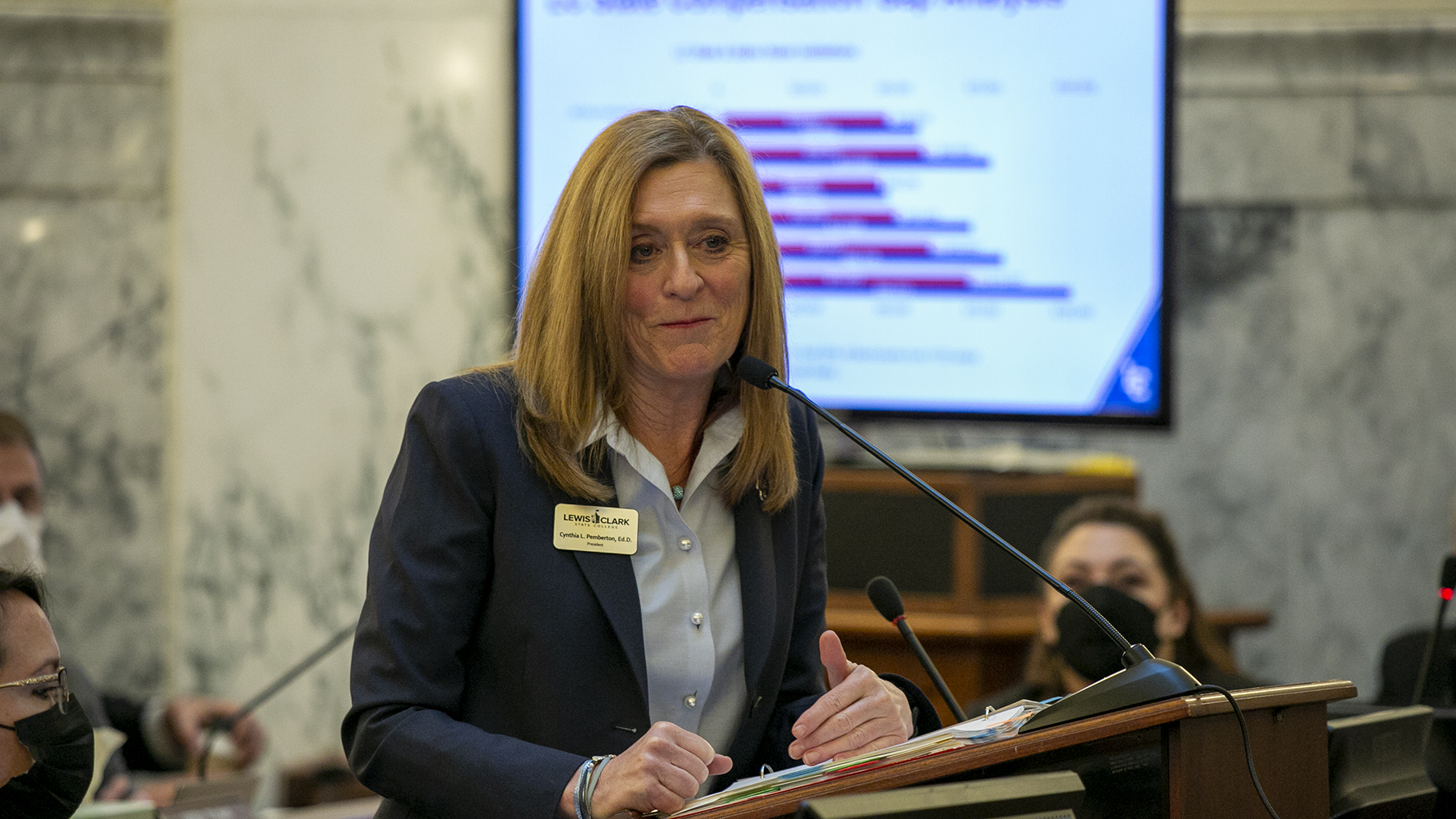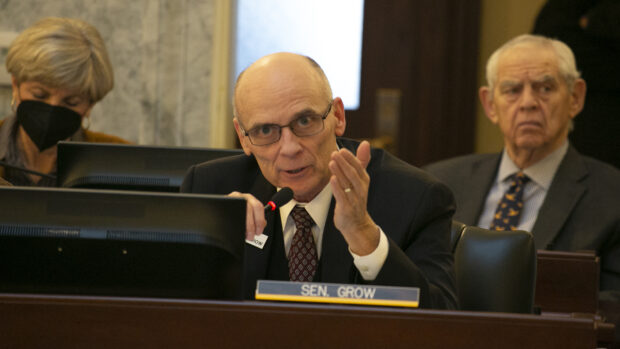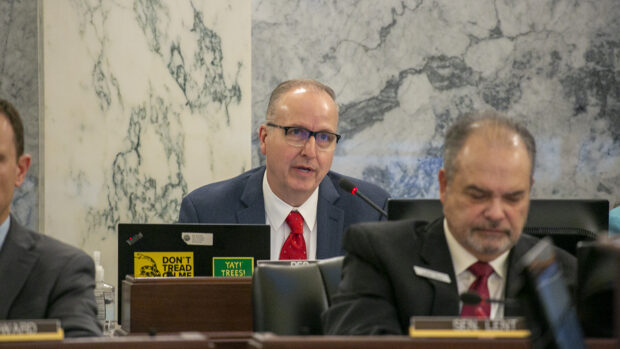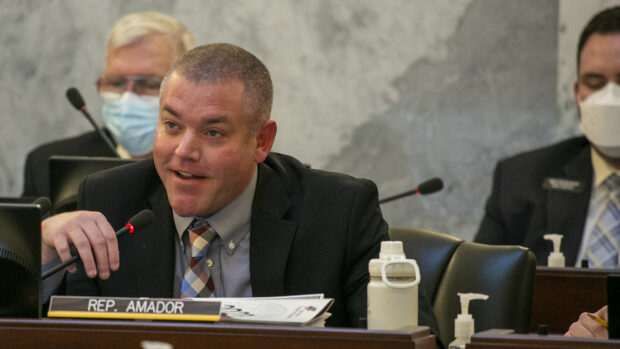
If you had cannibalism on your 2022 legislative bingo card, congratulations.
Lewis-Clark State College President Cynthia Pemberton was trying to make a point to legislative budget-writers Tuesday: Her college is taking seriously any complaints about indoctrination. So when she heard rumblings about a class condoning cannibalism, no one shrugged it off. As it turns out, the class in question was in anthropology — a unit on historic tribes that practiced cannibalism.
The discussion was appropriate for an anthropology class, said Pemberton, who added, in an abundance of caution, “No, that wasn’t advocating cannibalism.”
Good to know.
There is straight-up, actual cannibalism, and then there is the metaphorical, political version. As Idaho’s college and university presidents made the rounds at the Statehouse this week, another bloody higher education budget battle came into focus.
For one thing, the presidents raised the possibility of a tuition hike, ending a two-year freeze. That’s a tough sell politically — especially when a record-setting state budget surplus could reach $1.9 billion, and when Gov. Brad Little has proposed a historic higher education budget.
And for another thing, Little’s proposed budget is just that: a proposal. It still has to get through the Legislature, and get past a bingo card’s worth of buzzwords: indoctrination, social justice, diversity, equity, inclusion.
The college and university presidents are on board with Little’s budget request, and that’s no surprise. It would put an additional 7.1% of general fund tax money into higher ed. In terms of the raw dollars, this $22.3 million would almost certainly be the largest one-year boost in higher ed spending in state history.
At the same time, Little has recommended a 5% raise in state employee pay. The presidents support this as well, but there’s a catch. The first $11.7 million would come from the general fund, from tax collections. The remaining $8.5 million would come from state “dedicated funds,” such as tuition and student fees.
The presidents say they want to provide raises, and try to stem the tide of employee turnover. But they say they can’t provide a 5% raise without increasing tuition.
Without using so many words Tuesday, two Joint Finance-Appropriations Committee members likened the situation to eating one’s young.
“What we’re really doing is a fund shift to our students, which is really an increase to our working families in Idaho, when we’re asking them to go on,” said Rep. Caroline Nilsson Troy, R-Genesee.

When Sen. C. Scott Grow, R-Eagle, expressed similar concerns about financing pay raises through a tuition hike, Alex Adams had a ready response.
The head of Little’s Division of Financial Management cited two decades of data from the Legislative Services Office — the Legislature’s professional budget staff — that found no correlation between the size of a tuition increase and the size of higher ed pay raises. Adams encouraged Grow to focus on Little’s bottom line request.
“I think it’s pretty safe to say the governor put his money where his mouth was in terms of communicating priorities,” Adams said.
But the governor’s higher ed request, while unparalleled, might be insufficient to head off a tuition hike.
In theory, Little and the Legislature could tap into some of its surplus, or federal coronavirus aid, to absorb the full cost of campus pay raises. Little is already doing something similar: proposing to use federal aid to put more money into K-12 teacher salaries. And he’s proposing this because schools are struggling to hire and keep teachers — the same kind of labor-market realities facing higher education.
There is always a risk in using one-time money to cover ongoing salary commitments. But the money is there.

One budget battle at a time, however.
Clearly, Little’s higher ed proposal is no done deal.
In JFAC this week, Rexburg Republican Rep. Ron Nate picked up the fight against what he called “wasteful” social justice programs, following up on the 2021 Legislature’s call to rein in social justice spending.
On Tuesday, he tried to pin down Boise State University President Marlene Tromp about specific spending cuts — three times. On Thursday, he asked Idaho State University President Kevin Satterlee the same question, but this time, one inquiry was enough.
Satterlee assured Nate that Idaho State uses voluntary fees to pay for its diversity programs, not tax dollars or mandatory student fees. But not before he addressed the premise of Nate’s question.
“We are focused on teaching our students,” Satterlee said. “We are not focused on indoctrinating our students.”
All week, Satterlee and his colleagues stepped into this year’s social justice battle with some trepidation. In JFAC, and in the House and Senate education committees, they assured lawmakers that their concerns were heard. They said they have spent the past several months communicating with faculty and students about academic freedom. They also said they are looking into any complaints or concerns they get.

That might not be enough to win over skeptics. Nate represents a significant conservative bloc in the House, which has banded together to vote down higher ed budgets on the floor in 2020 and 2021.
On Tuesday, those votes weighed on the mind of Rep. Paul Amador, R-Coeur d’Alene, a JFAC member who often draws the unenviable assignment of sponsoring higher ed budgets on the House floor. He posed an unabashedly political question to Pemberton. “Can you help us understand, what has changed at LC State in the last year, that would help us feel better about moving the budget forward this year?”
Pemberton told Amador that questions and complaints about classes go straight to her. Including the question about cannibalism.
So here’s where we stand.
We can rest assured that Lewis-Clark’s anthropology department isn’t pro-cannibalism. We can safely assume the culinary arts students aren’t studying how to pair fava beans and a nice chianti with a macabre main course.
And we also know that some kind of higher ed budget will pass the Legislature sometime this year. But things could get pretty gruesome before that happens.
Kevin Richert writes a weekly analysis on education policy and education politics. Look for his stories each Thursday.
